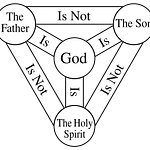Last week I explained what was Ecclesial apologetics. Apologetics is a defense of the Christian faith using a line of arguments. There are other familiar apologetics that many faithful believers have used for centuries. These include classical apologetics, evidential apologetics, and presuppositional apologetics. Each apologetic method uses a set of arguments. In this post I will briefly explain two Ecclesial arguments.
The Churches Initial Expansion
After Jesus ascended in a cloud in Acts 1, he left the first church standing there. This was about 15-20 people (Acts 1:15). In less then 100 years, the spread of the gospel had covered the entire Roman Empire all the way to Spain. The rapid expansion from these few followers to massive numbers of followers is impossible to ignore. Early defenders of Christianity saw this as clear evidence of a divine work. A second century apologist wrote,
“Don’t you see that the more [Christians] are punished, the greater their number becomes? These things do not appear to be human works; they are the power of God; they are proofs of his presence.”1
From the second century, apologist have been pointing to the world around the rapid expansion of the church. Augustine of Hippo makes the same point when he wrote,
“Now, we have three incredible things, and yet all three have come to pass: First, it is incredible that Christ rose in the flesh and ascended with his flesh into heaven. Second, it is incredible that the world has come to believe something so incredible. Third, it is incredible that a few unknown men, with no standing and no education, were able to persuade the world.”2
No one who lived in those first few centuries could deny how a few obscure people could spread such a message. And more then the message being spread, the multiplicity of peoples who believed and became followers shows a powerful testimony to it’s truthfulness. The power of God was actually working in the apostles as they worked miracles and were bringing people back to life. God’s supernatural power through the apostles started the movement, but it only continued as proclamation of that resurrection power continued. Thus for Augustine, this initial rise of the church was evidence for the truth of the resurrection and Scripture.
The Churches Care for the Poor
Timothy Jones wrote,
“According to the second-century apologist Aristides of Athens, the church’s care for the parentless and the poor could not be sustained unless the deity confessed by the Christians was real and true.”3
Different from our modern culture in America, caring for the poor cost much. When we feed a stranger, we still eat ourselves and have plenty. In the first century, when Christians were often deprived of food and shelter themselves. When caring for the poor, they would often go hungry themselves. These acts of love would be unsustainable apart from divine power. Jones continued to say,
…these habits were so radically countercultural in their context. Greek and Roman cultures assumed that the weak and the marginalized didn’t matter. The church’s patterns of generosity declared the opposite, claiming that the powerless matter no less than the powerful.”
This was more then a charitable act by a group of philanthropic people. The power of God is the only real explanation of such counter cultural actions in this first and second century context. But even now in the twenty first century, the church is still displaying such evidence. In our modern age, the church can likewise show such love for the vulnerable. The church can continue by recognizing every human as equally valuable and worthy of dignity. This is a distinctly Christian perspective. It is rooted in the self-evidencing truth found in Genesis 1:27. As the church continues to proclaim this truth, it is a convincing evidence of Christianity’s truthfulness. Jones sums it up well,
“Unreciprocated generosity toward the poor and marginalized is only perceived as praiseworthy in secular contexts today because people are still mining their values from moral motherload that two millennia of Christian tradition embedded in the soil of civilization.”4
From a dozen men and women watching Jesus ascend in the clouds to our 2025 local church, two millennia of Christians have been defending the faith. To be sure orators and authors have convinced people to believe. But there is no denying that God’s power has been remarkable displayed through the lives of his church. From the first century rapid expansion to countless acts of compassion to the weak, the church has collectively evidenced the power of God.
May we continue live and love like our church fathers, to God’s great glory and to the convincing of many, by the work of the Spirit of God.
The Epistle to Diognetus, 7.9 quoted out of “Understanding Christian Apologetics” Edited by Timothy Paul Jones
Augustine of Hippo, City of God, Volume VII: books 21-22, 22.5
Understanding Christian Apologetics, Edited by Timothy Paul Jones pg. 148
Understanding Christian Apologetics, Edited by Timothy Paul Jones pg. 150









